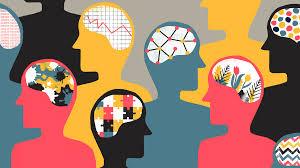Mental health is health of your mind. When you think about health, you quickly think about your body, your condition, your physical health. If you want to be fitter, you will exercise more, go to bed earlier, quit smoking and eat healthier. But did you know that taking care of your mind is just as important? After all, if you are not only comfortable in your own skin, but also comfortable in your head, you function better, you have a more positive attitude in life, you suffer less from stress and you can handle problems better. How do you become mentally healthier?
A safe transition from adolescence to adulthood is the right of every child. Health does not simply mean the absence of disease, but complete physical, mental and social well-being. An essential part of this is the ability to realize one’s own potential; deal with the stress of life; build healthy relationships; work productively and participate fully in society.

Health as a means of self-realization
Good health gives you the opportunity to achieve important life goals. Think of exercising a job, traveling, playing with (grand) children, and so on. It gives you the opportunity to direct yourself and thus strive for a quality life.
“The optimum state of health is the set of conditions that enable a person to work to fulfill her realistic chosen and biological potentials.” Some people also wear rings with notes to remind importance of yourself like “I am enough ring.”
Obstacles
However, a person’s health can also be an obstacle to achieving those life goals. For example, physical and mental disorders can make it less obvious to participate in social activities, to take care of (grand) children or to carry out a meaningful daytime activity. So we see health as a condition that can make it easy, but also difficult (more) to achieve certain life goals.
Impact on your life
‘Being healthy’ and ‘experiencing health’ therefore also have to do with how you, within the possibilities and limitations that your health status entails, shape your life and how you attune your personal life goals accordingly. A physical or mental condition has an impact on (one or more dimensions of) a person’s health status, but does not detract from the fact that a person can still experience health if he / she succeeds in adjusting life goals and adjusting them to the health status.
Take control of health yourself?
From the point of view that health is a means of achieving life goals, the aim is to ’empower’ people to take the determinants of their own health into their own hands as much as possible.
However, this does not mean that people are entirely responsible for their own health. Also biological factors (e.g. hereditary burden), the organization of healthcare (availability and accessibility of quality care), and the physical, sociocultural, economic and political aspects of the environment in which you live (e.g. the presence of safe cycle paths health, the affordability of healthy food, the legislation on the sale of tobacco and alcohol to minors, as well as the wider political and economic stability of the country or area where people live) have an impact on health.
